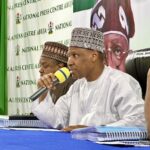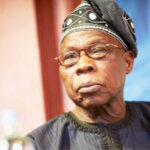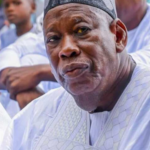The Nigerian state is increasingly working to close civic space and deny citizens freedom of speech and expression through repressive bills such as the Protection from Internet Falsehood and Manipulation Bill, 2019 (social media Bill) and the Prohibition of Hate Speech Bill (Hate Speech Bill) and ban on Twitter.
These Bills restrict citizens’ freedom of speech and expression online using some provisions the state says exist to protect national security. Although the Nigerian Constitution guarantees freedom of expression, the state is trying to use repressive laws to censor its citizens, gag their voices and deny their data-digital rights, and freedom of expression.
- Strike: ASUU appeals court order to resume work
- Supreme Court strikes out suit seeking PDP to zone presidency to South East
The Nigerian state in efforts to gag and deny its citizens data and digital rights has in the last five years starting from 2017, committed the sum of N15 billion in surveillance, an action the government claims is to fight domestic terrorism.
Although the government claims its action is to ensure the safety of the citizens, recent revelations and government actions have shown, the core focus is to spy on the citizens and deny them data and digital rights and restrict their freedom of expression.
For instance, some journalists and activists are reported to be under spy by the government, some of them have their telephone numbers blocked, email hacked, passport seized, and in some cases bank accounts restricted.
A pointer case is the #EndSARS movement where the government restricted bank account numbers of some conveners and placed them under surveillance. While some have fled the country as a result of threats to their life.
The Nigerian state lacks the culture of allowing its citizens to enjoy freedom of expression, and this has been transmitted from the military regime to the current democratic dispensation. The introduction of the Official Secrets Act by the military, internalized by the civil servants, now makes it difficult for the application of the Freedom of Information Act, 2011, and this shows the Nigerian state’s love for repression and lack of accountability.
With the increasingly repressive nature of the Nigerian state, putting citizens under surveillance, denying them data and digital rights, and freedom of expression, journalists, human rights activists, civil societies, and other stakeholders have begun agitation for legislation and policy that ultimately guarantees data and digital rights of citizens. A right they say is fundamental and a core principle of democracy that the Nigerian state practices.
In the increasingly digitizing world, it is the citizens’ fundamental right to have access to the internet, and digital tools. But it is not only the issue of rights, citizens must have the knowledge and assurance to use them in a safe, secure, and advantageous way. Therefore, this is a fundamental right that must be defended and propagated by the state, its institutions, CSOs, and media, placing citizens at the core of the demand.
Because data and digital rights are new and evolving in Nigeria, stakeholders are at the rudimental stage of understanding the field. Nigeria has laws that guarantee freedom of expression and the right to privacy, contained in the constitution and other codified laws. And, despite the existence of these legislations, there is no exact protection for the citizens on their data and digital right, while the state continues to use national security as a justification to abuse citizens’ digital rights.
The Nigerian examples have seen the security personnel such as the police and army rely on the Cybercrimes Act to go after journalists and citizens that criticize or are in disagreement with the government. And in many instances, in court trials, the police have accessed individual personal data without their consent, which shows the weakness of the country’s judicial system.
Although data and digital rights are increasingly becoming a dominant human rights abuse in Nigeria, there is not sufficient knowledge on how the data and digital rights of the citizens should be protected. And, of great concern is, many lawyers, judges, activists, CSOs, government officials, and media that ought to play a key role in championing campaigns and advocacy against data and digital rights abuse have little or no knowledge of the issue.
There is also a lack of public education and awareness on data and digital rights, and this is even as it remains a fundamental tool for holding the public and private institutions accountable.
One thing that has affected data and digital rights in Nigeria is the lack of effective coordination among actors to pull resources and skills to put in place data and digital rights experts who will help less informed citizens to have a good understanding of their data and digital right.
What we must do
There must be deliberate stakeholder training among CSOs, media, judiciary, activists, lawmakers, and the private sectors, to address a knowledge deficit in the protection, application, and enforcement of data and digital rights in Nigeria.
CSOs and Media must work to coordinate advocacies and campaigns that will mount pressure on decision-makers to put in place specific laws and policies that will ensure data and digital rights are recognized and protected as fundamental rights. And, in doing that, grassroots organizations, community change agents must be broad on board for sustainable impacts.
Audu Liberty Oseni is the coordinator of Media Advocacy and Women Awareness (MAWA-Foundation), Abuja
 Join Daily Trust WhatsApp Community For Quick Access To News and Happenings Around You.
Join Daily Trust WhatsApp Community For Quick Access To News and Happenings Around You.


